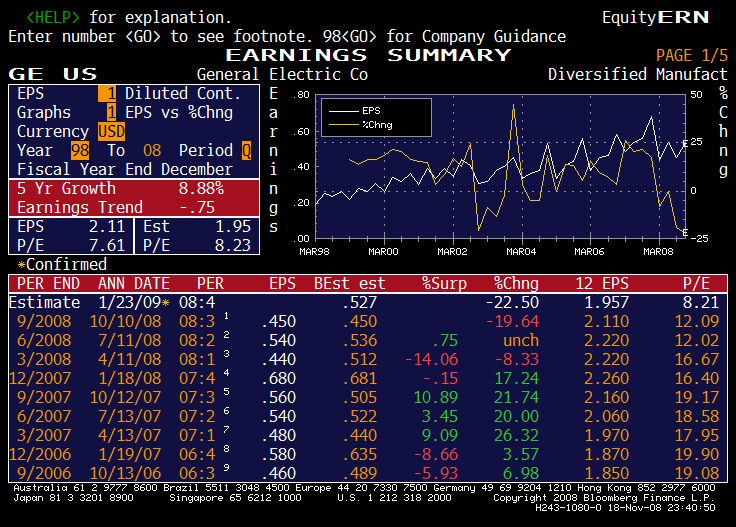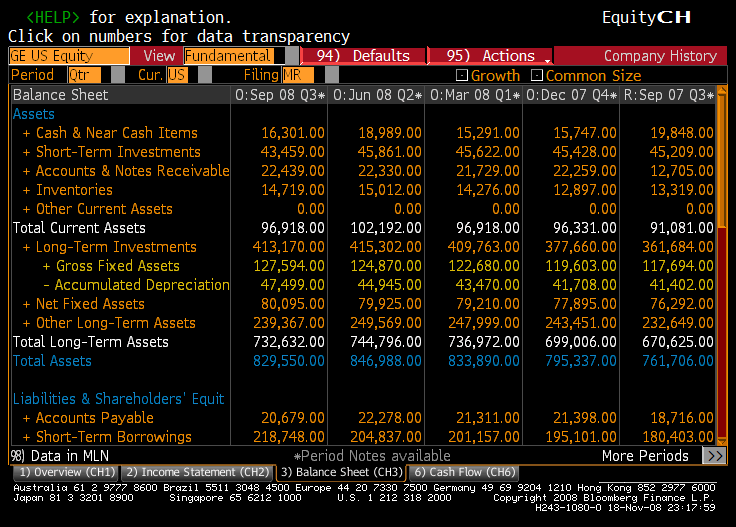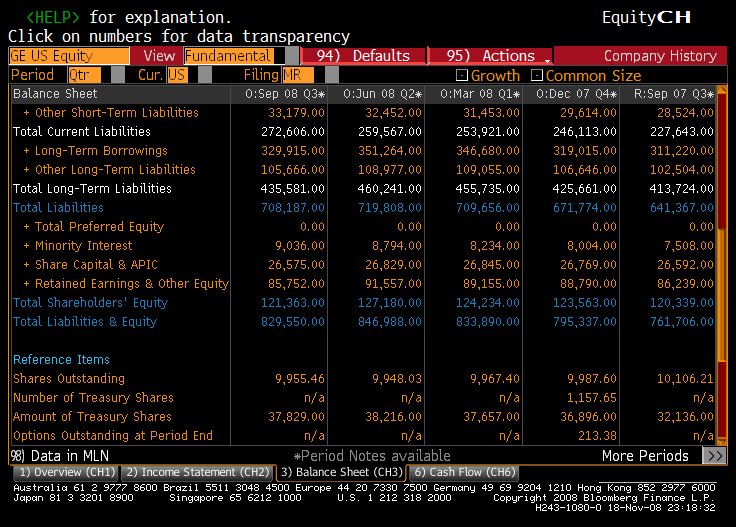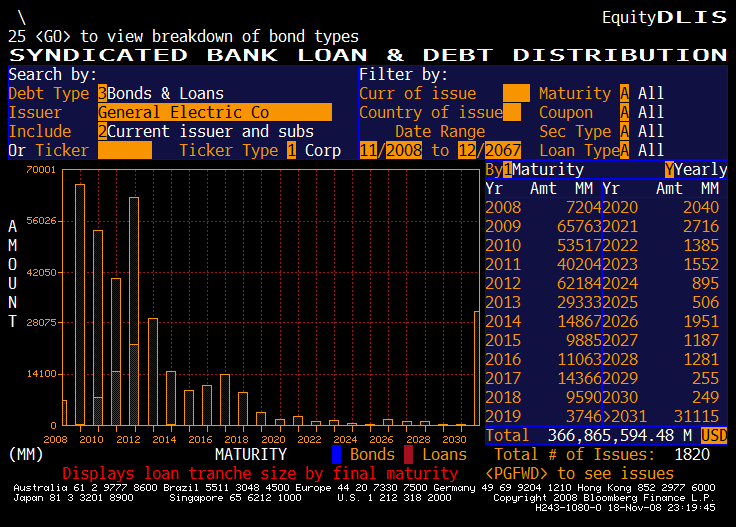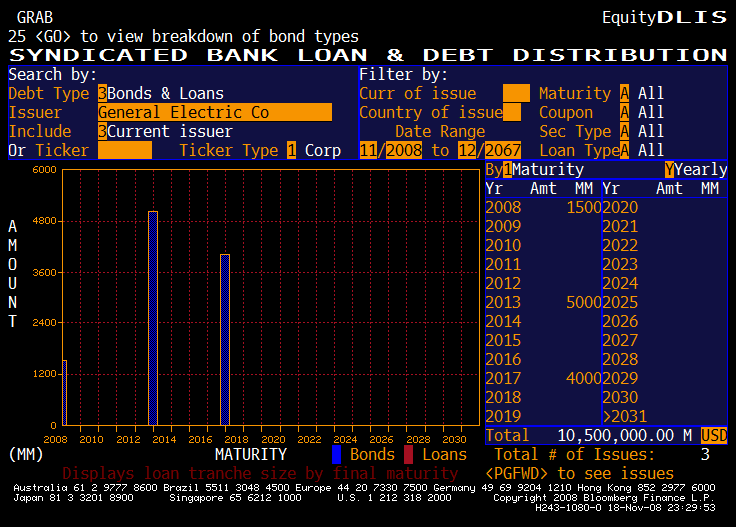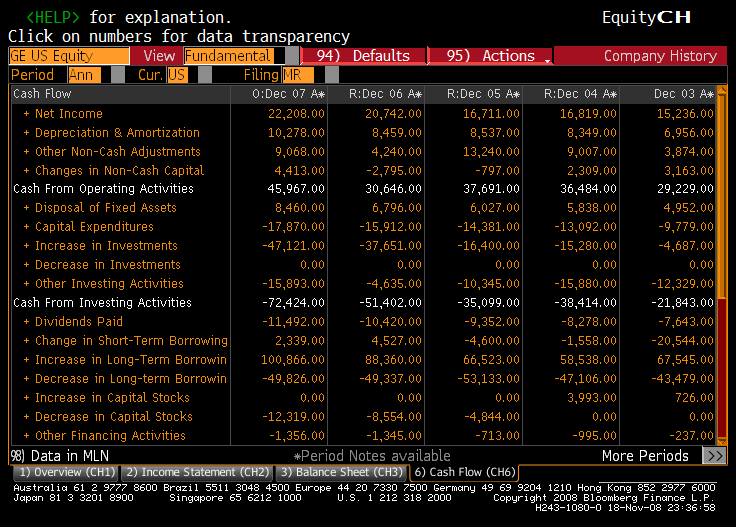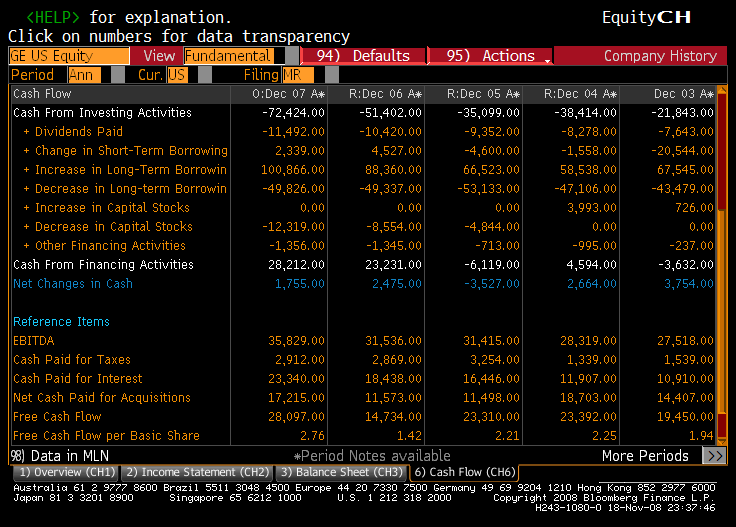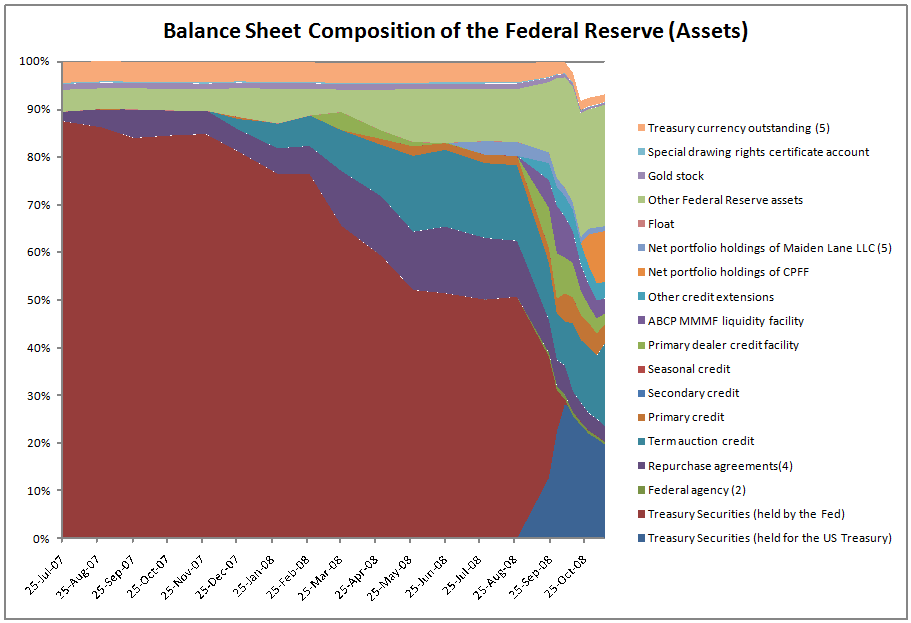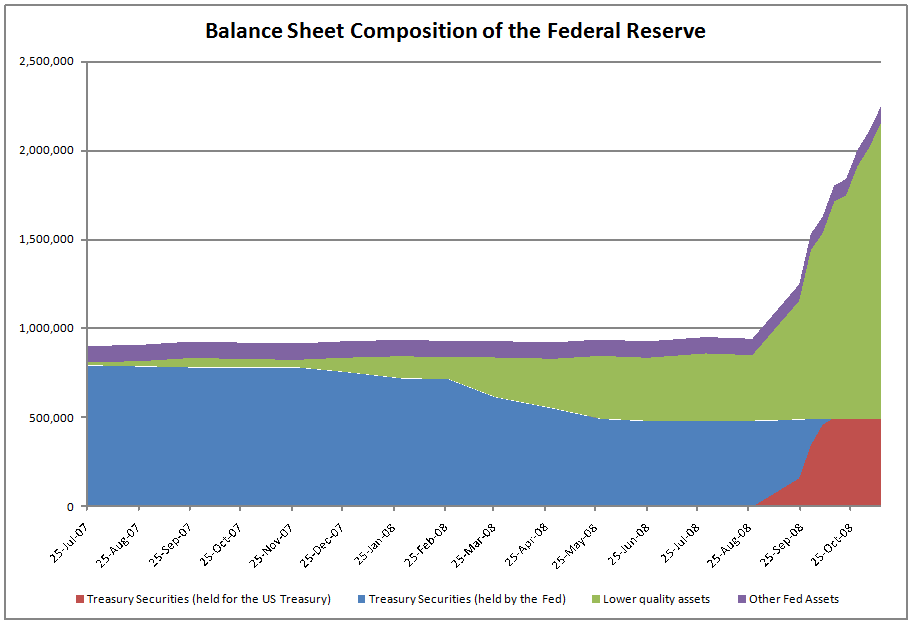I want to return to this topic to deal with some comments that I received.? Before I start, I want to repeat a comment that I made at Barry’s blog:
Barry, I?m going to toss out a third possible cause for the end of the Great Depression. The first two are FDR?s programs and WWII, both of which I don?t find compelling.
I grew up in this business as a risk manager, and a bit of a innovator there. I had experience with nonlinear dynamic modeling which most actuaries and financial analysts, even most quants, don?t get or use. The economy, and most industries are nonlinear dynamic systems, which means there will be cyclical behavior, and that behavior will be more volatile the greater the level of fixed commitments in the system that must be satisfied.
Economies that primarily use equity finance are more stable than those that primarily use debt finance. It becomes easier to have a cascade of failure the greater the overall debt burden is on the system. So, the total debt level has a major impact on the behavior of the economy. In 1929, total debt to GDP was 280%. By 1941, that level was 160% or so, where it stayed (more or less) until 1985.
After that, debt to GDP moved up parabolically to 360% by 2007, and now we find ourselves in the soup in two ways: 1) total level of debt, 2) complexity of debt because of securitization and to a lesser extent, derivatives.
Why did the depression end around 1941? Reason 3 (my reason): enough debt had been paid down or written off, and loans could be made to good borrowers, but only enough that financial sector would grow slowly (not faster than GDP).
The answer today, in my opinion, is that we need expedited procedures for bankruptcy to reset the system, getting lenders to compromise with borrowers, and bring down the debt to GDP ratio. I don?t think the present programs will work, and they may actually prolong the crisis, a la Japan. In my opinion, we won?t see significant economic growth until the debt to GDP ratio falls into the 150-200% range.
That is my opinion in a nutshell.? Or, as I commented regarding Hank Paulson here:
He could have tried a more modest solution of expediting bankruptcy processes, because the most pressing need for the economy is to turn bad debts into lesser equity stakes, so that the debt overhang can clear.
This probably includes streamlining personal bankruptcy such that lenders receive back loans with smaller principal balances, plus property appreciation rights.
Total debt levels must be reduced below 180% of GDP, and then the Fed must add a new constraint to their policy. Tighten when Debt/GDP rises above 180%, and raise bank capital thresholds in response to the overall indebtedness of the economy.
Better to go back to a gold standard, I say, but if you’re going to have fiat money, at least do it intelligently, so that debt does not get out of control, as it did in the 20s, and 1985-2007.
In essence this would give a third mandate to the Fed.? When total debt to GDP levels get above 180%, tighten, and make bank exams tougher.? Below 120%, flip it (sending a nickel to my pal Cody).
Now, I received a number of responses to my original article.? I’d like to mention a few of them here, and respond.
From Ray Taylor — ?.hmmm ? ?I say Big Bang???so you?re a financial analyst with a wife and eight children and you don?t mind being unemployed for a few years?or, alternatively, bagging groceries at Kroger (if it?s still in business)?you might want to ask the rest of your family for their opinion.
Good point.? I have a decent amount of safe assets laid away, but I am an equity manager, so I am not in a great spot.? I am more than willing to bag groceries, though, or work at other more mundane tasks if things get really bad.? My father taught me the value of hard work.? I am not worried for my family if our nation survives.? I am concerned over whether our nation survives.? Present policies are lowering the odds of survival.
Also, I have many friends in my church that will help me if things get bad.? I helped in the good times; they will help in the bad.
From Michael M. — First, I have a deep suspicion that people who advocate we take our medicine sharply, are generally in positions where the pain will not happen to fall sharply on them, but on other people. I suspect the author is one of these. I am pretty appalled at the indifference such people show to the enormous suffering real depression would bring to huge numbers of people.
Second, I do not know of strong agreement that the Great Depression cured itself; most seem to think the fortuitous enormous spending of World War II finished it off, not an automatic self-regulating process.
Michael, I am 65% exposed to equities relative to my net worth.? Part of that is a promise that I made to my long only investors that I would always have a minimum amount of my net worth exposed to what they are investing in.? I speak what I think is the truth because that is what I am supposed to do ethically, whether it hurts me or not.
Also, I believe my proposals would cause the most people the least pain.? The present proposals of our government point in the direction of FDR and Japan, prolonging the pain.
You are right that there is no consensus saying the Great Depression healed itself.? As I said to Barry above, what I am saying is that the consensus is wrong, and that the Austrian School and those that understand nonlinear systems theory are right.? We can’t establish prosperity by government actions (leaving aside infrastructure); prosperity comes through private actions.
From Mike in NOLa — With respect to protectionism, Michael Pettis has pointed out that China today is much like the US was in the late 1920?s, with huge foreign currency reserves and manufacturing overcapacity. As such, China may be the one to go protectionist, either explicitly, or by monetary manipulation. See his last two posts:
http://mpettis.com/
I read everything Michael Pettis writes.? I agree totally.
From JVDeLong:— David – a question for you. I cannot claim a good grasp of macro, but my intuitive sense is that the key is your comment about the ratio of debt to GDP. Some of these claims must be wiped out by default – but the chief political characteristic of the system is an utter inability to inflict losses. Everyone must be bailed out.
So if we cannot allow piecemeal bankruptcies to clear the system, then what is the alternative except national bankruptcy ? which takes the form of meeting all the claims in nominal terms and then hyper-inflating?
I have stayed with stock market investments on the theory that either the crisis will be brought under control and the stocks will recover, or that the efforts will fail and national bankruptcy will ensue, which means that money-equivalents are not a conservative investment. I do not think the Fed/Treasury will repeat the deflation scenario of the 1930s.
BTW – I heard James Grant speak last week, and he is bearish on money and bullish on high yielding corporate bonds, but I dunno ? that looks like threading a needle.
Your thoughts (and I would be happy to be told that I am crazy)?
With respect to Mr. Grant and high yield, I would agree with him.? I am also bearish on the dollar, and would consider oil, gold, or yen as alternatives at present.
National bankruptcy, or significant inflation, is a possibility that everyone should consider.? I agree with you, the Fed and the Government do not want to repeat the 30s, which is why I think inflation is more likely, unless pressure from international interests makes the US government soak its own populace to pay foreigners.
Kevin Murphy says — David: Would a reverse ETF such as the Proshares Ultrashort treasury funds be a good hedge against inflation or a failure of the Government to finance it?s obligations at current interest rates?
Though I don’t like levered ETFs because they usually underperform their targets, yes, that would be a good strategy.
Ben Says: — Has anyone tried to estimate what the economic situation would have been in the US had we not won the war? I know it sounds stupid, but I?m very dubious about this ?WWII ended the depression theory?. Winning WWII was such a profound positive shock to the US economy that attempts to draw economic analogies and quantify an equivalent amount of peacetime stimulus seem stretched at best.
In terms of the question of how much stimulus we need, there must be many more examples of countries applying economic stimulus to study than the few people are bantering about at the moment. OK, so modern day Japan, Britain in the 70?s and the total experience of the New Deal are not encouraging for Keynesians. Where are the happy endings?
Good points, the Keynesian remedies have not generally worked. Policymakers follow those remedies not because they work, but because they maximize their own power.
VennData Says:– The claim that ?this will give a chance to see who was truly correct about what to do then versus now?? is an exaggeration of the benefit of ex post outcomes of economic cause and effect.
The idea that a ?Bling Standard? is somehow realistic, desirable, is wrong, Even the Swiss have dumped theirs. It makes you vulnerable to whomever buys up ?all the? gold: SWFs, foreign central banks, Private equity, Hedge funds etc? The Fed may have had a hand in too much leverage, but the system self-corrects. The biggest problem after Reagan?s appointment of Greenspan was Bush?s administrative fiat: the 2004 leverage ruling and Congress?s post-Clinton budget busting.
One change we need is addressed correctly above: government policies need to be counter cyclical during boom times – no nation wants to be hamstrung by the pro-cyclical ?Bling Standard? – government systems should be counter-cyclical.
At a minimum, the Fed needs to be allowed into VIP lounge where the punch bowl resides.
VennData, I agree with you that policy needs to be countercyclical under a fiat money or gold standard.? In general, governments are averse to doing so, because it reduces their power.? For that reason, I believe that the government should not be in the money business; it gives them power that they have not managed well, and don’t deserve.
But, you misunderstand my comment that you quoted.? I expect the government to interfere massively, and that the malaise will be prolonged as a result.? Bernanke’s methods, and those of the Treasury, will be ineffective, showing that we really did not learn the right lesson from the Great Depression.? The right lesson would be that in fiat money environment, the central bank must limit the creation of leverage.
Russ Wood Says: JVDeLong wrote — So if we cannot allow piecemeal bankruptcies to clear the system, then what is the alternative except national bankruptcy ? which takes the form of meeting all the claims in nominal terms and then hyper-inflating?
The alternative lies in the denominator of the Debt/GDP ratio. We have to grow GDP as fast as possible. Unfortunately, no one wants to talk about creating incentives for growth. The only discussion is how to cushion everyone from slower growth.
Russ, I sympathize with your views, but growing GDP rapidly is impossible in a credit-based economy when the banks are compromised.? Debt reduction is the main way out, intially.
=–=-==-=-=-=-=-=–==-=-=-
So, my views remain unchanged, and perhaps affirmed.? Depressions, like popped bubbles, are primarily phenomena of finance.? They happen when cash flows from assets are insuffiicient to cover liability cash flows.
Would that our government would wake up and realize that the right policy is the one that feels wrong in the short run.? Aside from that, does anyone care about the implications regarding individual freedom?? Or, that group freedoms are affected as well?



